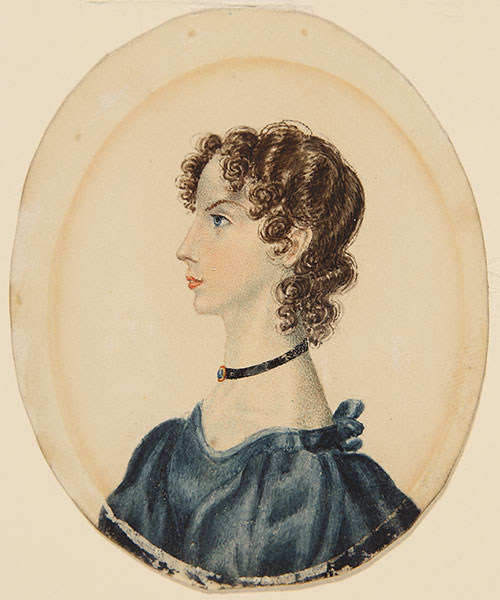
Why should a woman author be compelled to keep things nice? English poet and novelist Anne Brontë (1820–1849) adopted an ungendered pen name because she wished to be heard. Still, critics couldn’t help speculating about the identity of the pseudonymous “Acton Bell.” After she published a novel featuring graphic depictions of addiction and domestic abuse, one reviewer accused the author of harboring “a morbid love for the coarse, not to say the brutal.” She issued a written retort: “If I can gain the public ear at all, I would rather whisper a few wholesome truths therein than much soft nonsense.” Moreover, she added, “I am satisfied that if a book is a good one, it is so whatever the sex of the author may be.”
Brontë published two novels and twenty-five poems before her death at age twenty-nine. This small installation, on view in the Rotunda of J. Pierpont Morgan’s Library and drawn entirely from the Morgan’s own holdings, marks the two-hundredth anniversary of Brontë’s birth and celebrates her bold, enduring literary voice. It includes her annotated Bible, early editions of all her published work, manuscripts of her poetry, and two letters from her sister Charlotte about Anne’s final illness.
A web presentation features digital images of all the Anne Brontë literary manuscripts in the Morgan’s collection, the largest in the world.
Watercolor portrait of Anne Brontë by Charlotte Brontë (1816–1855), 17 June 1834. Image courtesy of the Brontë Society.
